Berlin Journal, Part I
Thoughts and sights in the German capital

Setting off for Berlin, I have a few thoughts, or maybe more than a few. For the last many years, Berlin has enjoyed a positive, even a glowing, reputation. It is a haven for the young, or a magnet for the young. It is an exciting city, a diverse city—and, crucially, an affordable one. Young people gather from countries all over the world to study and begin their careers and have fun.
Berlin is a dynamic, inviting hub.
I, um, grew up with World War II—not with the war itself but with books, movies, and documentaries about it. Also, there were many WWII vets around. So the very mention of “Berlin” may include a tone of darkness—in my ear, I mean.
But also, I grew up in the drama of the Cold War, the great struggle between East and West, which was crystallized in Berlin, divided as it was.
Anyway, a jumble of thoughts, as I set off ...
***
I will attend two events: the World Liberty Congress and Berlin Freedom Week (or at least its opening day). I will have notes on those separately. What I am doing here at Onward and Upward is a personal journal, and a city journal (of the kind I have done for eons).
***
Berlin is a big city, the capital of Germany, its largest city, and the largest in the whole EU. It is also a state: one of the smallest in Germany.
I am reminded of Mexico City—a city (big) and a state (small), both.
***
At the airport, I see a sign that says “Spandau.” For young people, no doubt, that is simply a borough of Berlin. But I will ever think of Spandau Prison, where Rudolf Hess was the last, and only, prisoner. This Nazi hanged himself in 1987 at age 93.
Did he really? A lot of people had a hard time believing that.
The prison was demolished, lest it become a Nazi shrine.
I also see a sign saying “Potsdam”—which, in my mind, is always followed by “Conference.” (Truman, Churchill, and Stalin met there, in the summer of 1945.) (Atlee replaced Churchill, in the course of the conference. Stalin must have been amazed by this . Elections? New leaders?)
***
There is a slew of ethnicities and races in Berlin, as indicated by the shops, and the people in themselves. It seems to me that Berlin is practically as diverse as New York (in ethnic and racial terms). I seldom see a person in a service job who is “German German.”
Are these other people taking away work that “German Germans” themselves would do? Are they hogging the positions of convenience-store clerk, Uber driver, and so on? Are they taking bread out of the mouths of real Germans?
I doubt it.
This is a big topic, written about ad nauseam, by lots of us. Here and now, in this breezy lil’ journal, I’d like to say one thing.
When you ask the question, “Will it all work out?,” two different ideological camps explode.
Of course it won’t work out, you big dummy, it’s failing already, and Europe is dying, and the same will happen to America! Wake up, cuck!
Alternatively,
How dare you ask that question, racist!
Well, a pox on both of those houses. “Will it all work out?” is a damn good question, on whose answer a great deal depends.
***
Good to see Nobel Street—named after my man Alfred Nobel. There is also Karl Marx Street. And, speaking of communists, Paul Robeson Street.
There are streets named after composers, too: Glinka Street, for example. And Fanny Hensel Way.
Fanny was born “Mendelssohn” and was Felix’s sister.
There is a park—a whole park—named after Felix, which is nice (both the park and the naming).
Stick with musicians: Is Bülow Street named after Hans, the conductor who married Liszt’s daughter (who left him for Wagner)? No. That street is named after a Prussian general who lived from 1755 to 1816: Friedrich Wilhelm Freiherr von Bülow.
Can’t win ’em all, Hans (but at least he was rid of the wretched Cosima Liszt).
***
When I come to Europe, I am reminded of America in the old days: because I smell cigarette smoke. At home, I hardly ever smell cigarette smoke. Other smoke—hideous—but not Camels, Marlboros, Kools, etc.
***
How do you like the Winter Garden? Kind of Berlin-y, right?
***
Above, I was talking about the American past, and its cigarette smoke. Talk about the American past ...
***
Another blast from the past! (The American one.) At home, does BK still say “Have it your way”?
You remember the origin of that slogan, don’t you? When you went to McDonald’s, they would give you a hamburger pre-set—you could not vary it. So, Burger King, seeking an edge, introduced options: “Hold the pickles, hold the lettuce. Special orders don’t upset us. All we ask is that you let us serve it your way!”
Blessed choice.
***
In a hotel’s breakfast room, the yogurt comes in glass—actual glass. Thickish glass. I have not seen this in America ... ever? Also, the orange juice is fresh-squeezed.
This is an ordinary hotel, let me say. Nothing fancy. Rather modest. Still, fresh-squeezed orange juice, not that stuff that tastes like medicine.
***
In a grocery store one afternoon, I buy a chocolate croissant—costs about a buck fifty. Where I live, you couldn’t get one as good for 20. You couldn’t find one as good at all. I could eat ten of them and then pass out.
Fortunately, I don’t have the time ...
***
All over town, there are graffiti, in those fat graffiti-style letters. I can’t tell you how sick I am of that. What a blight. Hardly different from vandalism. (Harrumph.)
***
“Achtung!” means simply “Attention!” or “Watch out!” Mothers call it out to their kids when they get too close to the street. But I ... watched a lot of WWII movies ...
***
In this town, the sidewalks (as I think of them) also include a bike lane. And woe to you if you wander into the bike lane. You could wind up a pancake.
***
Walter Gropius, I know. One of Alma’s husbands. (Alma Schindler married Gustav Mahler, Gropius, and Franz Werfel, fooling around all the while.) I believe I lived in a Gropius-designed dorm.
But the big Gropius here, as far as I can tell, is Martin Gropius, a 19th-century architect, and Walter’s great-uncle.
Huh.
***
The World Liberty Congress is held in the Abgeordnetenhaus, i.e., Berlin’s house of representatives. I see some familiar faces in the corridor.
Karajan, for example—Herbert von Karajan, the Austrian conductor:
And here’s Dietrich Fischer-Dieskau, the baritone (whose centennial it is):
Another musician? Helmut Schmidt. But hey, wasn’t he West Germany’s chancellor, from 1974 to 1982? Yes—but he also played the piano, even in public.
Here is Hans-Dietrich Genscher, who was foreign minister for the whole of my youth and young adulthood (1974–92):
I tip my hat to John J. McCloy, a pillar of the American Establishment—“establishment” in the best sense. He played many roles for us, including high commissioner for Germany.
How would you like to be called Führer? Reinhard Führer?
But listen: This longtime parliamentarian was an outstanding friend of the Jews, as you can read about here.
And this is enough for Part I, I think. Thank you and see you.



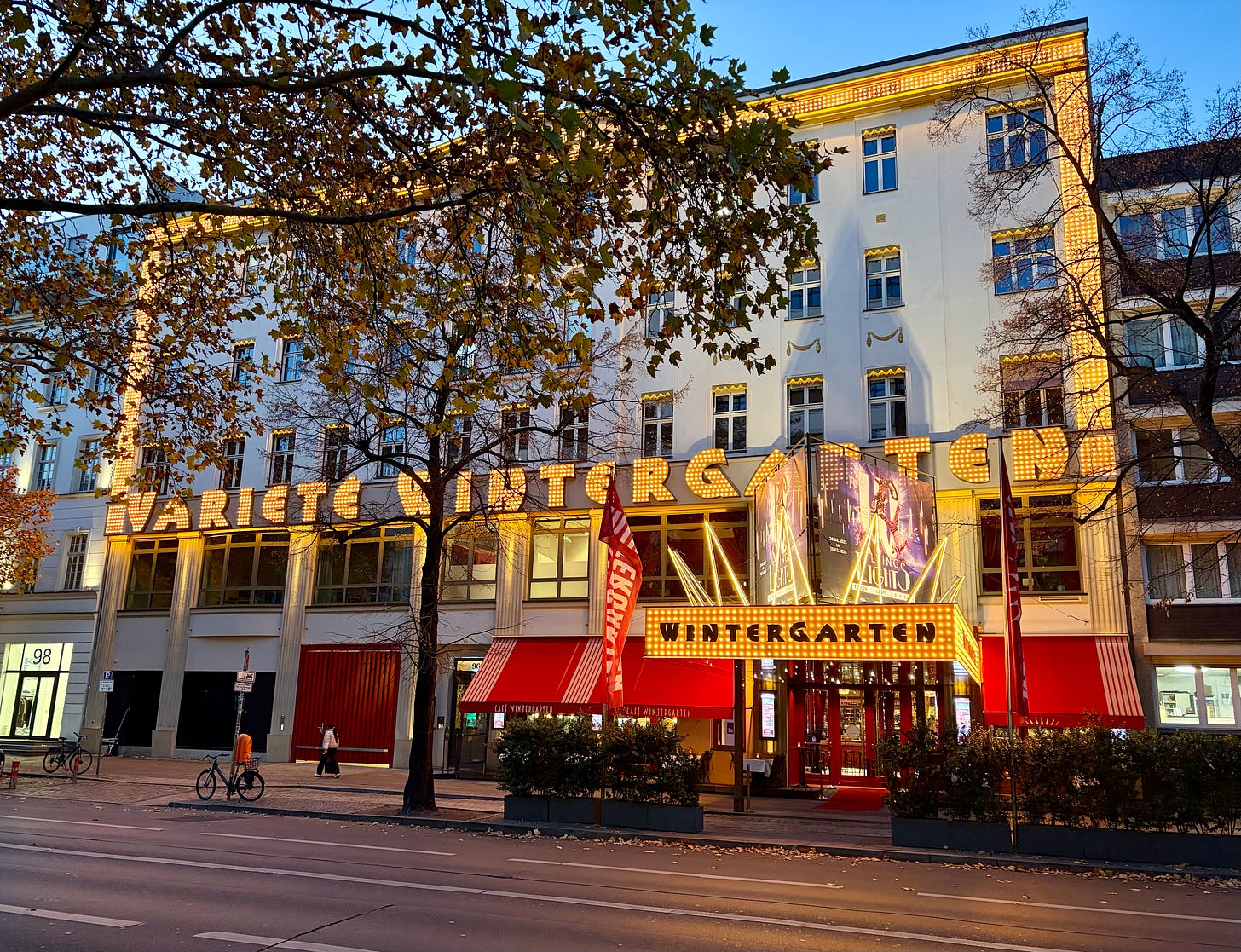
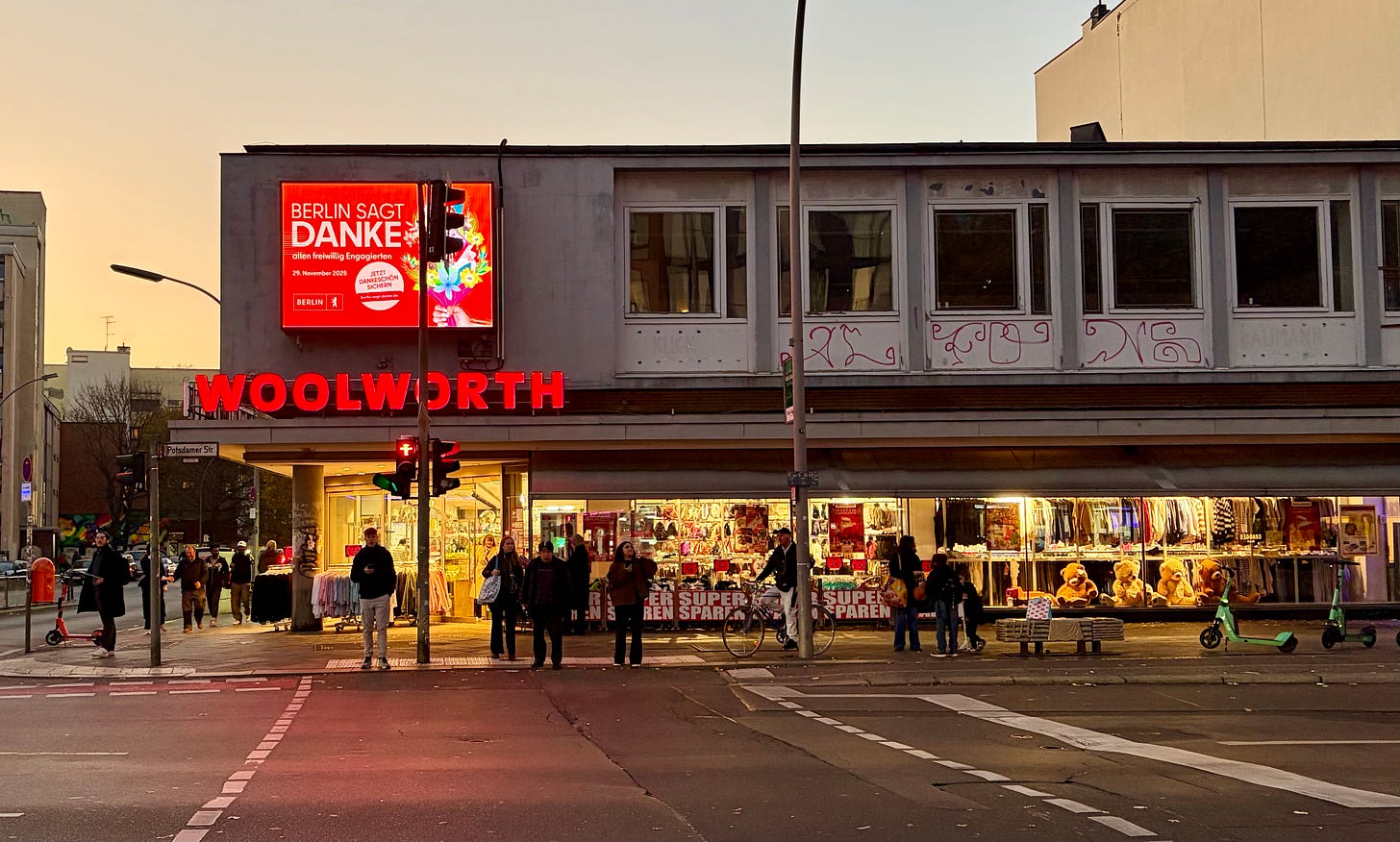
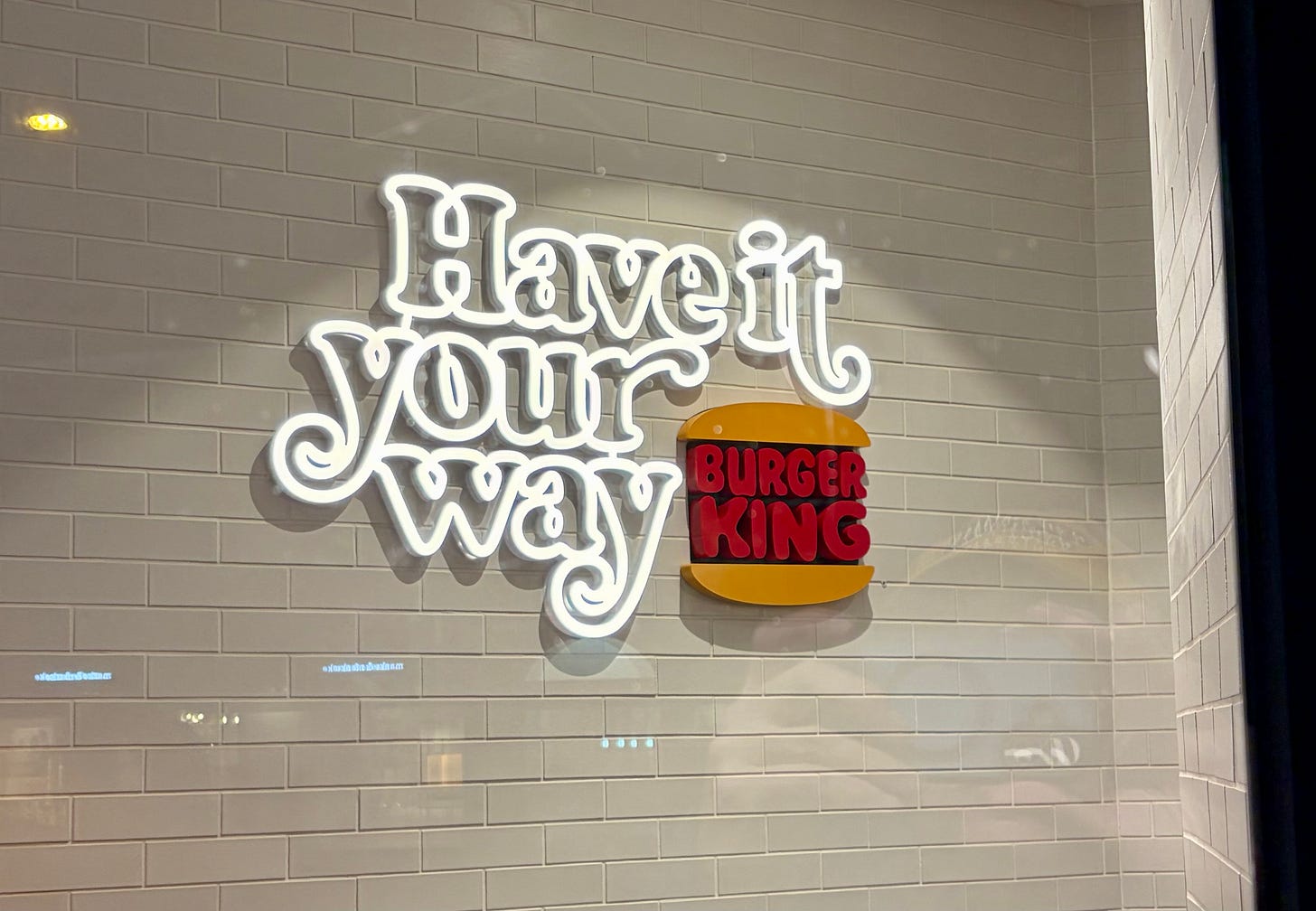
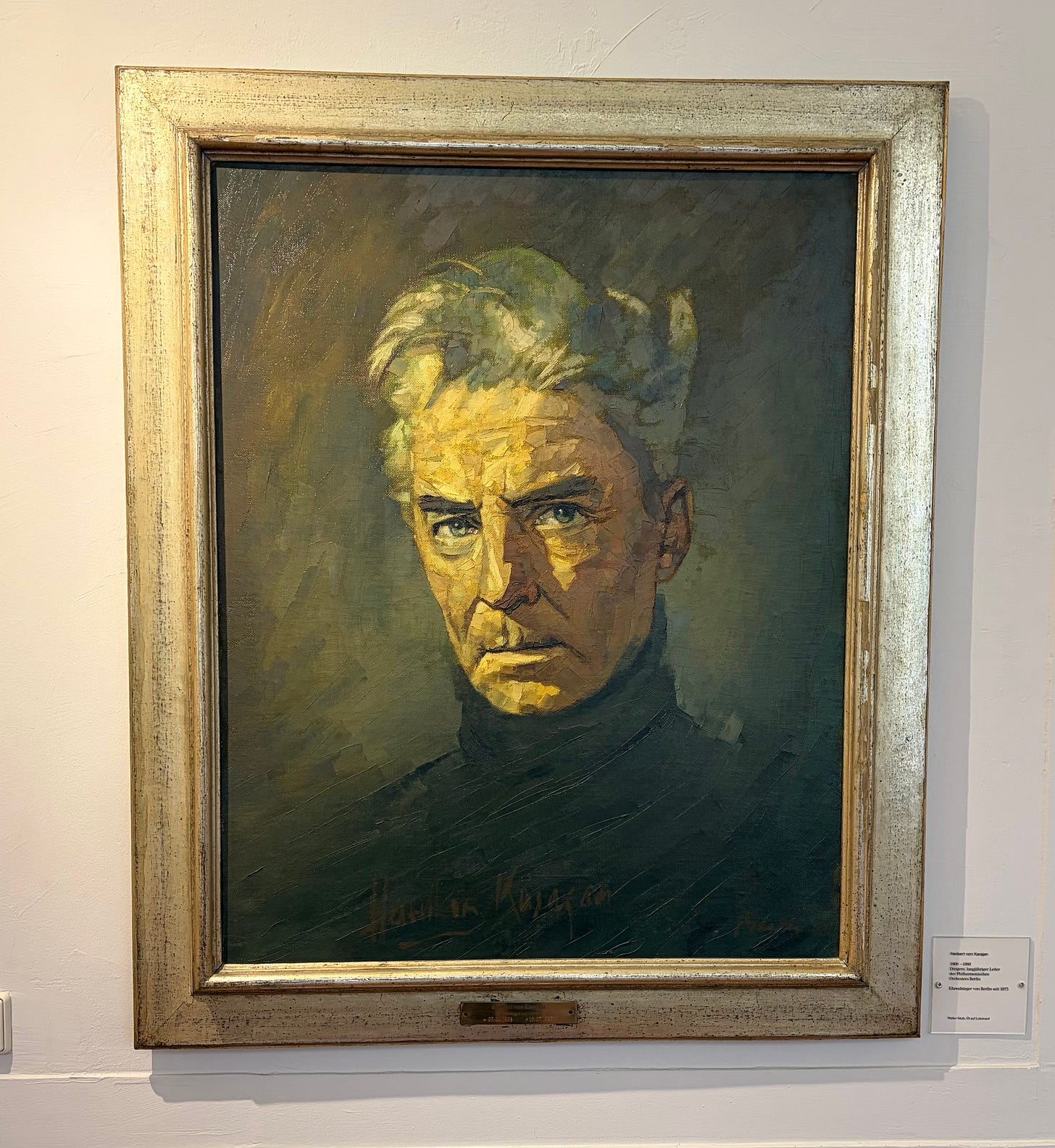
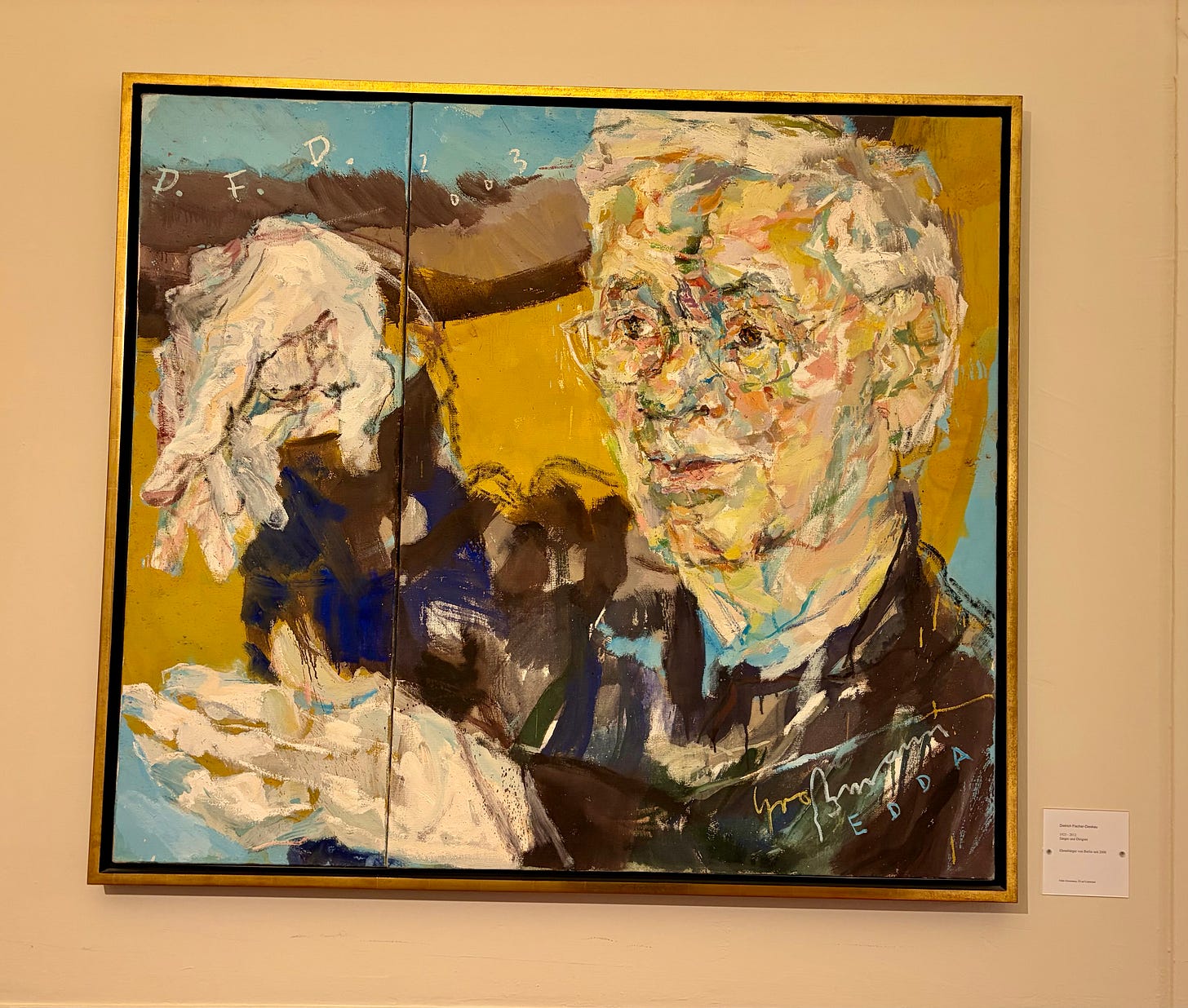
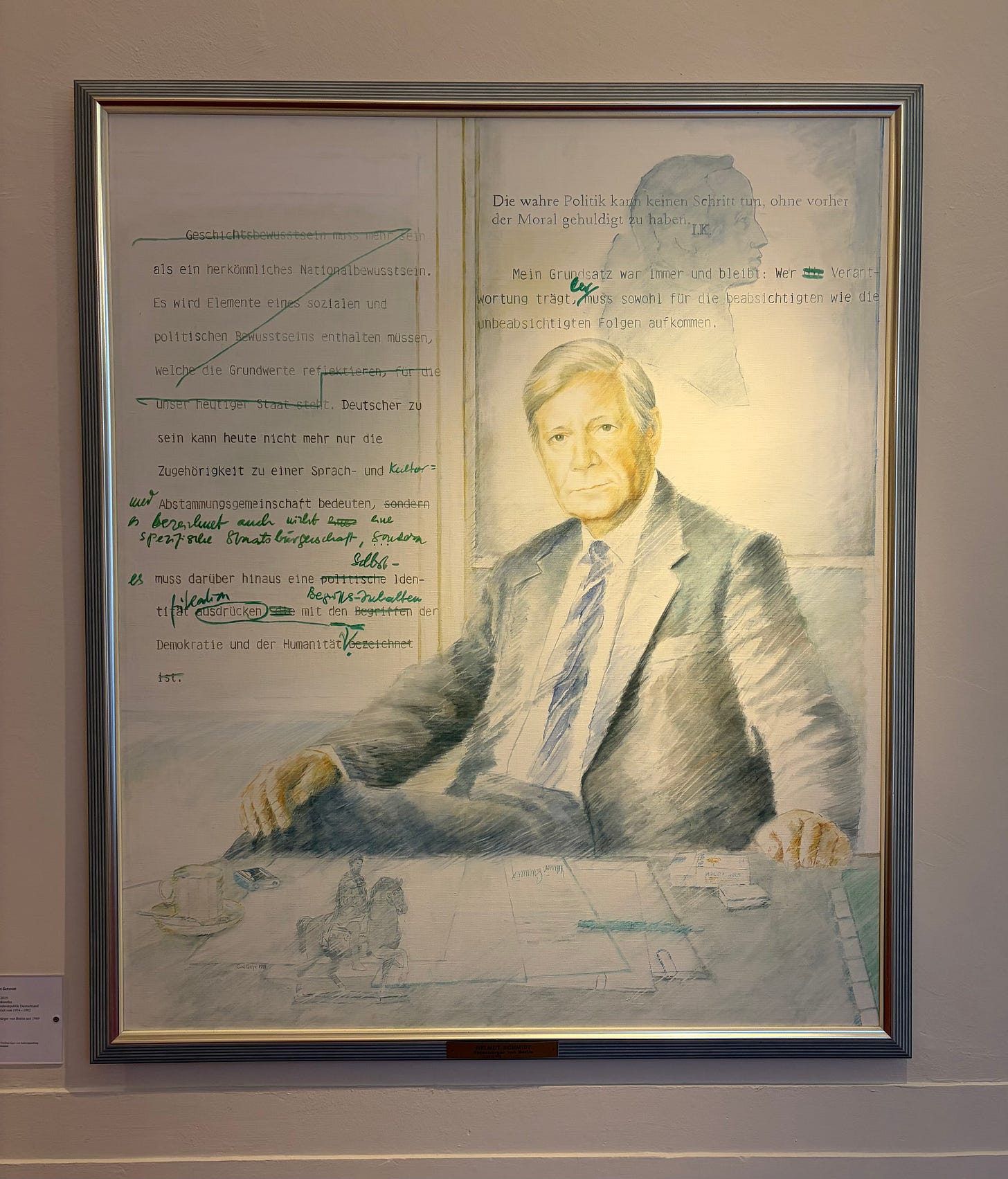
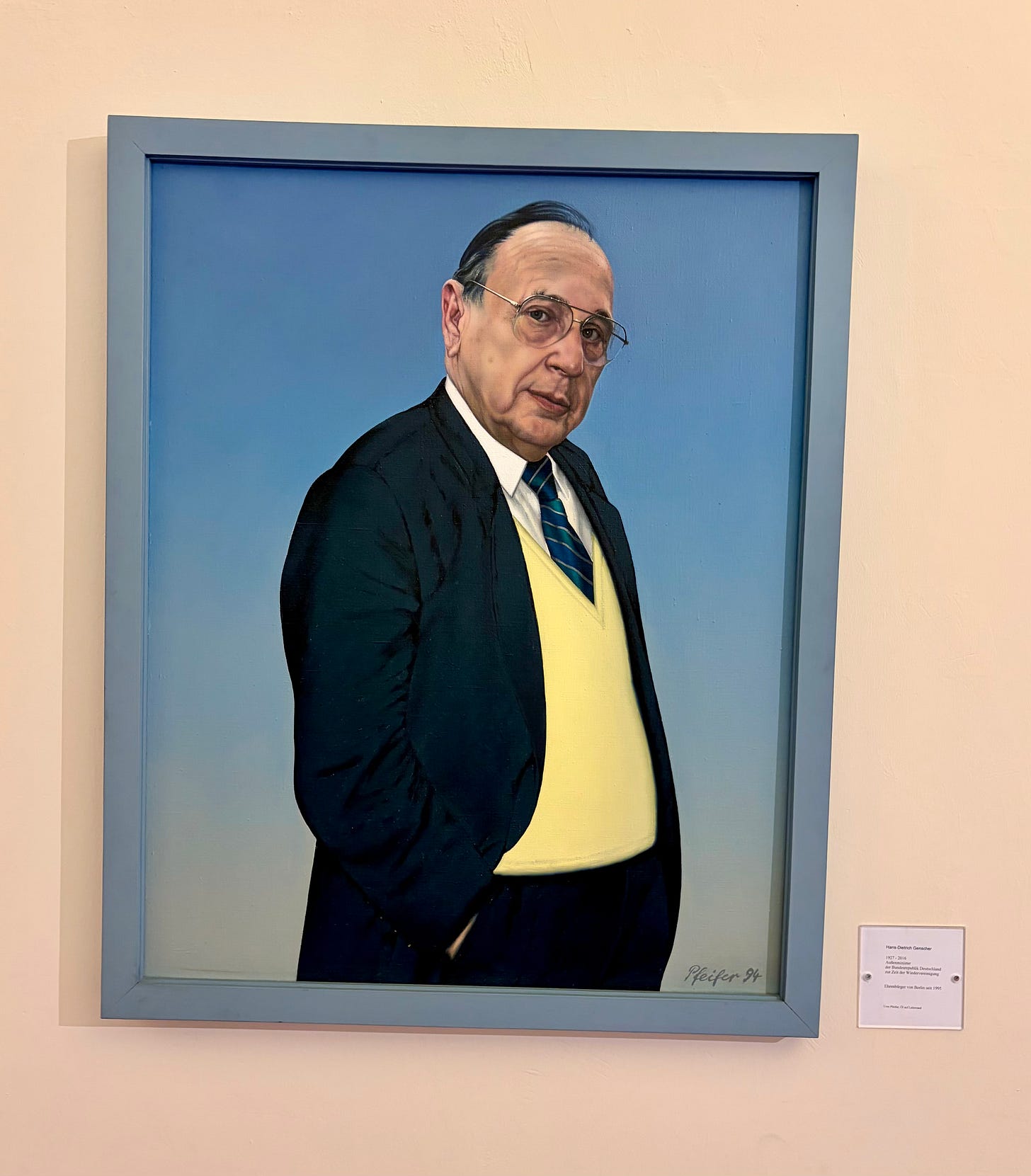
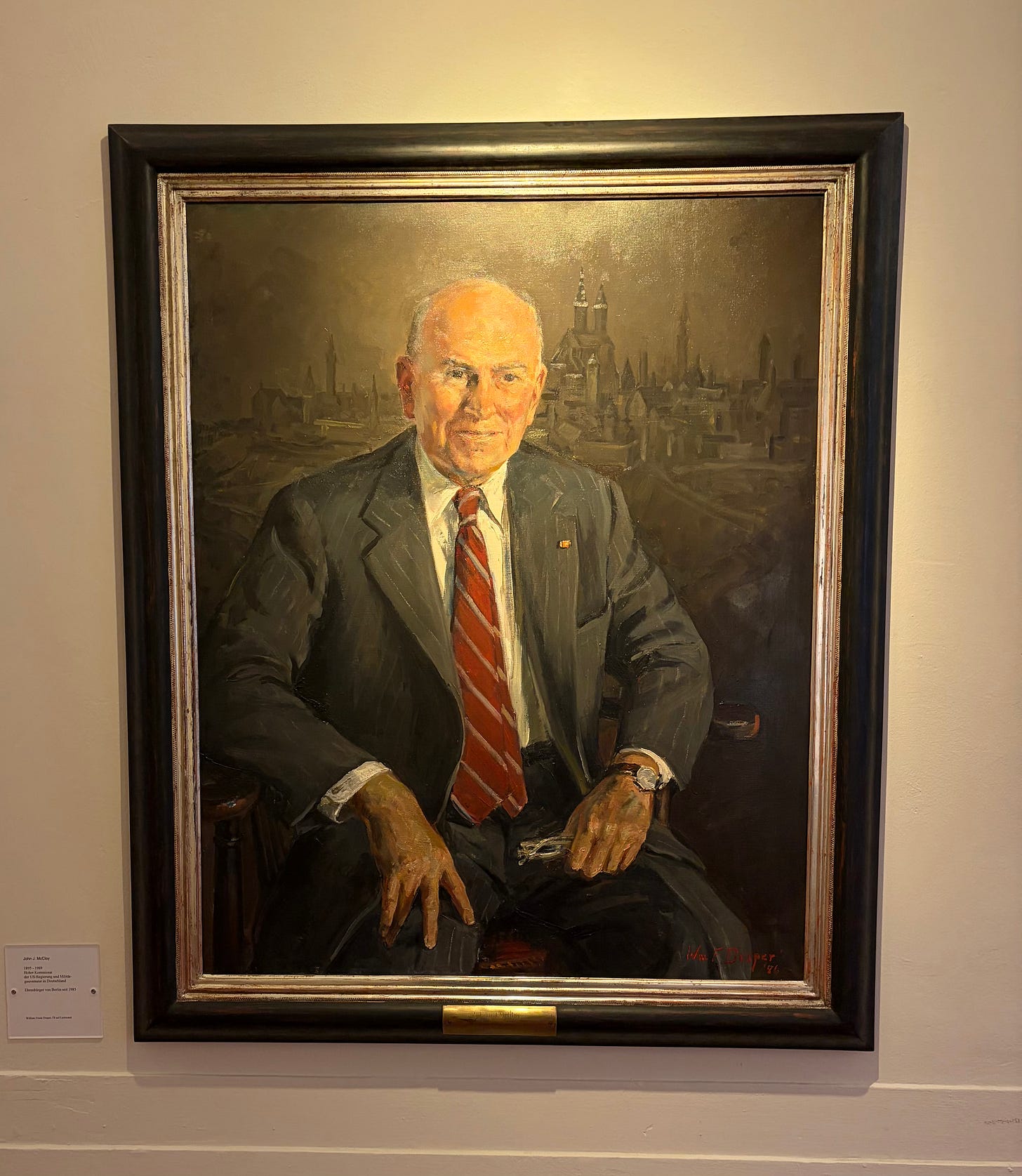
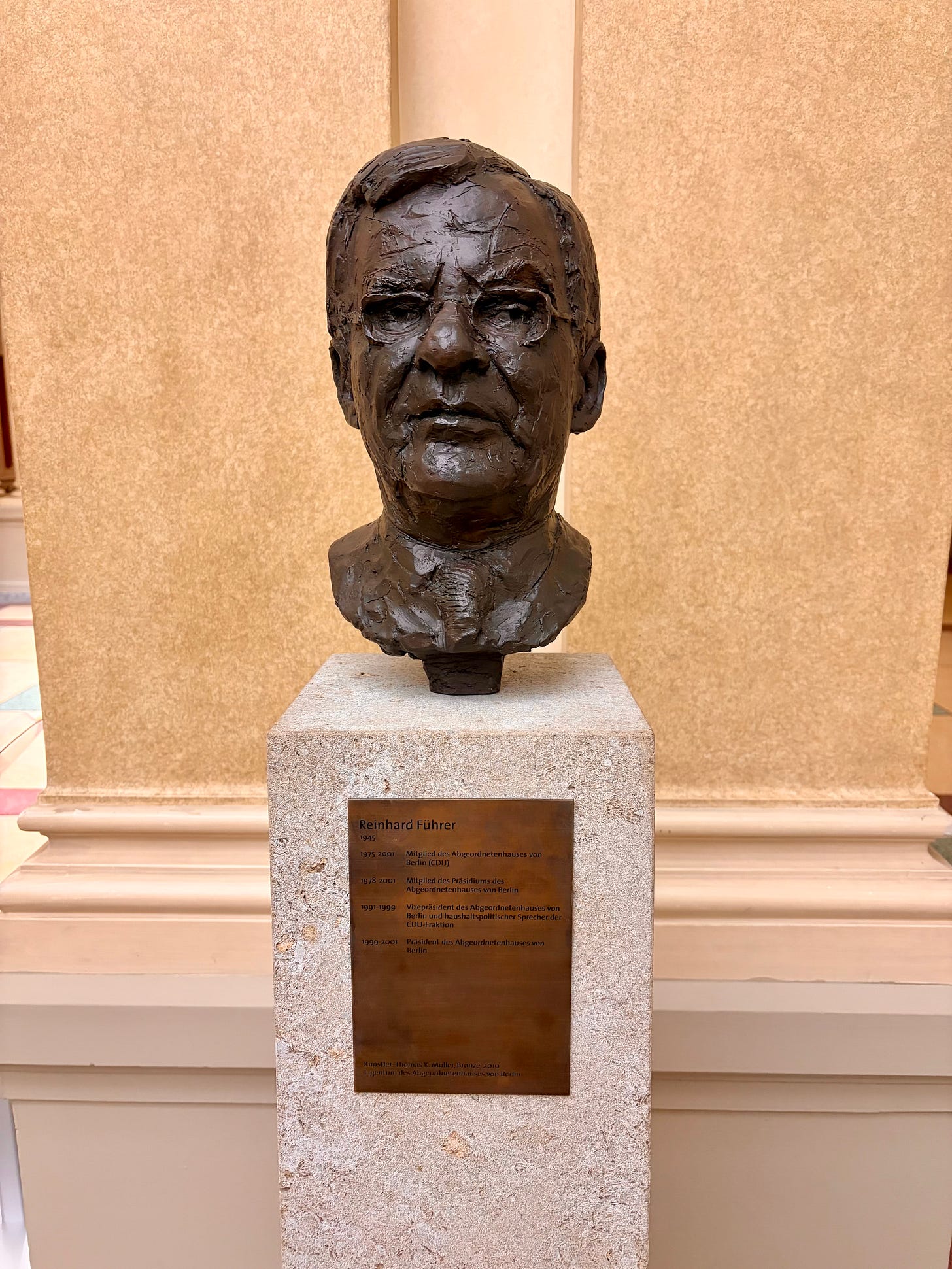
Agree with you entirely on pot smoke (it’s hideous), mostly on graffiti (you’re wrong to write it’s hardly different from vandalism, it is vandalism - and also hideous), but part ways with you on Spandau. I’m just a few years younger than you. So for me Spandau is followed by a silent mental ‘ballet’.
Hmmm ... fresh-squeezed juice and pastries for a buck-fifty that would have cost $20 in New York?
Whyzat??
What's the trade-off?